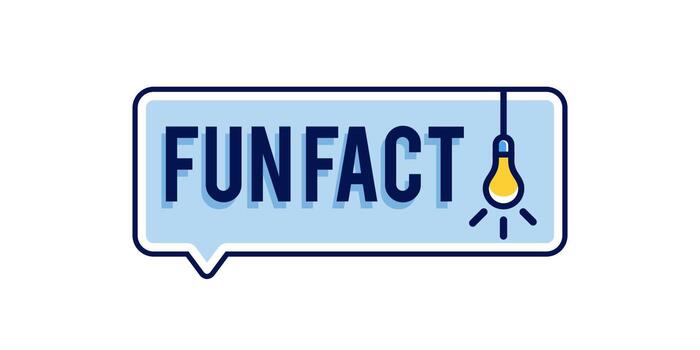Brian, via email, asks:
Can you tell me how the writer-agent relationship works? How did you go about finding an agent?
First, please keep in mind that I can only speak about the relationship that I have with my agent, Taryn Fagerness. Being new to the publishing world, I don’t know if our relationship is typical of most writers and agents, so please be prepared to accept this with a grain of salt.
In the spring of 2006, I finished Something Missing, and with my school year coming to a close, I made it my goal to find an agent before the end of my summer vacation.
I began online, researching the process by which writers find agents, and initially, I was discouraged. Based on my findings, it seemed as if many writers got their start by knowing someone in the industry. A professor recommends a talented young writer to an agent. A magazine or newspaper editor sets up a meeting between a staff writer/fledgling novelist and an agent who once worked at the magazine as well.
I had no such contacts. I was living in Connecticut, writing on my dining table, with no friends or colleagues in the literary world. I knew that finding an agent wasn’t going to be easy.
And so I began. I spent the entire month of July reading through The Writer’s Market, circling the names of prospective agents, researching their agencies online, and writing and sending query letters. Almost one hundred in all.
My goal was to target my search to those agents who were most likely to like my manuscript, and this plan paid off enormously. What I have learned is that any old agent won’t do it. You must find an agent who loves your work at least as much as you do if not more. I have been asked for the name of my agent by would-be writers more than once in hopes that a name might be enough for them to find an agent, but each time, I have refused.
I refuse for a couple of reasons. First, and foremost, I wouldn’t want Taryn to hate me. Passing on her name to others simply wouldn’t be very nice, nor do I think it would be professional. But I also believe that the name of a literary agent is meaningless. Taryn is the right agent for me, but she is not necessarily the right agent for everyone. Or even for most. And I think she would agree.
At their core, literary agents are people who like books. But like all people, they each have particular preferences and tastes. Taryn loved my manuscript, and as a result, she decided to work with me, much the same way an actor might choose a movie or a musician might choose a song. She had to love the material to make it work.
I sometimes think Taryn loves my book more than I do. This is a very good thing.
So when choosing agents to whom I would send my query letters, I targeted those whose taste best matched my work. The Writer’s Market, as well as the agency websites, can be enormously helpful in this regard.
Taryn works for the Sandra Dijkstra Literary Agency, which, according to Writer’s Market, accepted unsolicited submissions at that time. After identifying this agency as a possibility, I went online to read about each individual agent. There were several from which to choose.
I started by eliminating the agency’s founder, Sandra Dijkstra. I thought that since I was new to the publishing world, I might have a better chance and be better served by someone less established. Sandra Dijkstra’s biography is impressive. Too impressive, I thought, for a little guy like me.
I settled on Taryn after reading in her bio that “In a fiction project, Taryn is drawn to highly original concepts and voices; she likes an element of the unexpected.” While I wasn’t sure how to characterize my book or writing style yet, I thought that my main character, Martin, and the means by which he engaged in his profession (thievery of an unusual sort) was an original concept. And while I’m not sure if I would describe the novel as a suspense story, it certainly contains elements of the unexpected throughout.
I was also intrigued by the word quirky. Taryn’s bio indicates that she is drawn to quirky nonfiction topics, and while my novel is fiction, it had been described by some of my early readers as amusing and quirky, and the elements of nonfiction that it contains might meet this description as well.
So I wrote to Taryn, and about 100 other agents, and once my query letter was out, I waited. Two weeks later the responses began rolling in.
Of the eighty or so letters that I sent out, about 90 of the agents responded to me, usually in a form letter or postcard, but some with personal letters as well. In all, I received ten responses that contained some kind of personal remark, whether it was a handwritten addendum to a form letter or a two-page letter directly specifically to me. Eighty-seven of those responses were rejections of one sort or another, sometimes with offers to resubmit once the manuscript had undergone revisions, but most were flat-out rejection nos. Three agents, including Taryn, showed genuine interest in the manuscript, and it was during this courting process that Taryn wrote to me and later called.
I knew immediately that Taryn was the right fit for me. And on the last day of a difficult summer vacation (a long story), Taryn called, informing me that she and her agency would like to represent me.
I couldn’t have been happier. She was enthusiastic, honest, and full of ideas for revision, and most importantly, she got me. Understood me as a writer. Appreciated my work. I spent three years at Trinity College in a Creative Writing program and many more hours in writing classes and workshops at various colleges, museums, and other locales, and no one has been more effective at helping me edit and revise than Taryn has, despite the fact that we have yet to meet face to face.
And this surprised me as well. After selling to book to Doubleday, I was contacted by my editor, Melissa Danaczko, who has also been nothing but the best for me and the book. Her first message to me, which I still have on my answering machine, informed me that she anticipated a “light edit” of the manuscript. Light edit, I can assure you, only because of the months of work that Taryn and I spent in getting it ready for sale. I never realized how important an agent can be in the revision process. I was under the impression that an agent simply takes your book and attempts to sell it to a publisher as is.
Thankfully this has not been the case.
For more than five months after signing on with Taryn, she and I worked on editing and revising the manuscript together in order to prepare it for sale. This began with long conversations over the phone regarding her thoughts on the book, followed by dozens of emails back and forth as the process continued. Even today, as I begin to get close to finishing my second book, Taryn is with me, reading the first draft and making many excellent suggestions.
I know the search for an agent isn’t easy, and for many, the process can take considerably longer than it did for me, but I urge you to continue your search and seek out the right person for the job.
Someone who will be a fan of your work.
It can truly make all the difference in the world.






